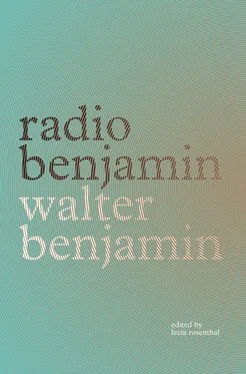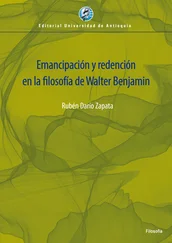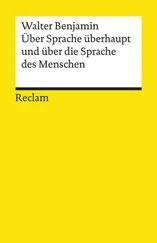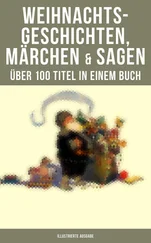You had specific reasons to set the story in Berlin, citing particular streets and squares as you did. In my view it is generally not at all a bad thing to indicate a setting precisely. Not only does it lend the whole story a semblance of historical truth, which aids a sluggish imagination, but, especially for those who are familiar with the setting, the story becomes so much more accessible and alive. 6
I could easily enumerate the many stories in which Hoffmann proves himself as a physiognomist of Berlin. I could point out the houses that he features in his stories, beginning with his own apartment on the corner of Charlottenstraße and Taubenstraße, followed by the Golden Eagle on Dönhoffplatz, and Lutter & Wegner on Charlottenstraße, et cetera. But I think we’d be better off investigating more closely how Hoffmann studied Berlin and the impression of the city left behind in his stories. Hoffmann was never a great friend of solitude, of nature. Communicating with people, observing them, merely seeing them, mattered more to him than anything else. If he went for a stroll in summer, which he did every evening when the weather was good, it was only to get to public places where he was likely to find people. And while he was out, he could not pass a wine tavern or pastry shop without going in to see if people were there and who they were. 7But it wasn’t just that Hoffmann would look around these spots for new faces to supply him with new and strange ideas: for him the wine tavern was more like a writer’s laboratory, or an experimentation chamber where every evening he tested the complexities and effects of his stories on friends. Hoffmann indeed was less a novelist than a storyteller, and even in his books, many if not most of his tales come from the mouth of one of the characters. Of course, in a manner of speaking Hoffmann himself is always this narrator, sitting around a table with friends as each tells a story in turn. One of Hoffmann’s friends explicitly recalled that he never sat idly in a bar as people so often do, just sipping and yawning. No, he would look all around with his eagle eye, noticing whatever was ridiculous, striking, or even particularly moving and making it into a study for his writing, or he would draw what he saw with his forceful pen — Hoffmann was a very deft sketch artist. But if ever he was dissatisfied with the company gathered in the tavern, or irked by the narrow-minded, petit-bourgeois guests around him at the table, he could become absolutely insufferable, putting to frightful use his talent for making faces, embarrassing people, even terrifying them. For him, however, the greatest horror sprang from the so-called aesthetic tea societies that were all the rage in Hoffmann’s Berlin: gatherings of unlearned, uncouth dilettantes who boasted of their interest in art and literature. In his Fantasy Pieces he described one such society to great comic effect. 8
As we now draw to a close, let us not be accused of forgetting our question, “to what end?” Not only have we not forgotten it, we’ve already answered it without even knowing. To what end did Hoffmann write these stories? He certainly had no conscious purpose. But we can read them as if he did. And that purpose is nothing other than physiognomic: to show that this prosaic, sober, enlightened, and rational Berlin is full of things to charm a storyteller — not only in its medieval nooks, secluded streets, and somber houses, but also in its working inhabitants of every social rank and from all corners of the city — which can only be teased out by dint of observation. As if Hoffmann set out to teach this to his readers through his work, one of his very last stories, dictated from his deathbed, is nothing less than a seminar on physiognomic seeing.
This story is called “My Cousin’s Corner Window.” 9The cousin is Hoffmann, the window is his apartment’s corner window overlooking the Gendarmenmarkt. The story is actually a dialogue. The crippled Hoffmann sits in an armchair watching the weekly market below and instructing his cousin, who is there on a visit, how much can be divined, and moreover devised and concocted, from the clothing, pace and gestures of the market women and their customers. After having said so much to Hoffmann’s credit, I shall close with something that most Berliners would not suspect: that he is the only writer who made Berlin famous abroad, and that the French loved him and read him at a time when in Germany, even in Berlin, a dog would not eat a biscuit from his hand. Now things have changed. There are a great many affordable editions of Hoffmann, as well as more parents than there were in my day who allow their children to read him.
“Das dämonische Berlin,” GS, 7.2, 86–92. Translated by Jonathan Lutes.
Broadcast on Radio Berlin, February 25, 1930. Benjamin dated the typescript, “Radio Berlin, 25 February 1930.” For this date, the Funkstunde announced a “Youth Hour (Berlin), Speaker: Dr. Walter Benjamin,” from 6:00–6:25 pm.
1August Halm (1869–1929), German writer, music critic, composer, and music educator. From 1903 to 1906, Halm was an instructor at the Hermann Lietz School in Haubinda. Benjamin attended the school from 1905 to 1907.
2Benjamin borrows here from the biographical notes by Julius Eduard Hitzig in Ernst Theodor Amadeus Hoffmann: Ausgewählte Schriften, vol. 15 (Stuttgart: Brodhag, 1839), 29.
3For a related description of reading texts by the forbidden Hoffmann as a child, see Benjamin, Berliner Kindheit um neunzehnhundert, GS, 4.1, 284–5 ( Berlin Childhood Around 1900, SW, 3, 402).
4See Heinrich Heine, Briefe aus Berlin [1822], in Werke und Briefe in zehn Bänden, vol. 3, ed. Hans Kaufmann (Berlin and Weimar: Aufbau-Verlag, 1972), 556.
5Benjamin will make the same comment about Hoffmann’s narrator, and about Hoffmann himself, in his “E. T. A. Hoffmann and Oskar Panizza” (269).
6See E. T. A. Hoffmann, Die Serapionsbrüder I [1819–1821], in Poetische Werke, vol. 5 (Berlin: Walter de Gruyter, 1957), 165 (“Ein Fragment aus dem Leben dreier Freunde”).
7Beginning with “Hoffmann was never a great friend of solitude,” this passage is an unattributed quotation of Hitzig, in Hoffmann, Ausgewählte Schriften, 32–4. Benjamin quotes the same passage, with attribution, in Charles Baudelaire: Ein Lyriker im Zeitalter des Hochkapitalismus , GS, 1.2, 551–2 ( The Paris of the Second Empire in Baudelaire, SW, 4, 28), and Das Passagen-Werk [M4a, 2], GS, 5.1, 536 ( The Arcades Project [M4a, 2], 425–6).
8See Hoffmann’s Fantasiestücke in Callots Manier: Blätter aus dem Tagebuche eines reisenden Enthusiasten [Fantasy Pieces in Callot’s Manner: Pages from the Diary of a Traveling Romantic] (Bamberg, 1819); and “Die ästhetische Teegesellschaft [The Aesthetic Tea Society]” in Die Serapionsbrüder 4, Poetische Werke, vol. 8. [1819–1821].
9“Des Vetters Eckfenster” (1822), in Späte Werke, eds. Walter Müller-Seidel and Friedrich Schnapp (Munich: Winkler, 1965).
CHAPTER 5. Berlin Guttersnipe
I bet that if you try, you can remember seeing wardrobes or armoires with colorful scenes, landscapes, portraits, flowers, fruits, or other similar designs inlaid in the wood of their doors. Intarsia is what it’s called. Today I’d like to present you with some scenes inlaid not in wood, but in speech. I’ll be telling you about the childhood of a Berliner, who was a small boy roughly 120 years ago, and about how he saw Berlin, about what kind of games and practical jokes were common back then. Amid all of this, I’d like to inlay the story with a few things that have nothing at all to do with our subject, but will, or so I hope, stand out from the story of Ludwig Rellstab’s youth as vividly and colorfully as does intarsia in paneled wood. 1
Читать дальше












